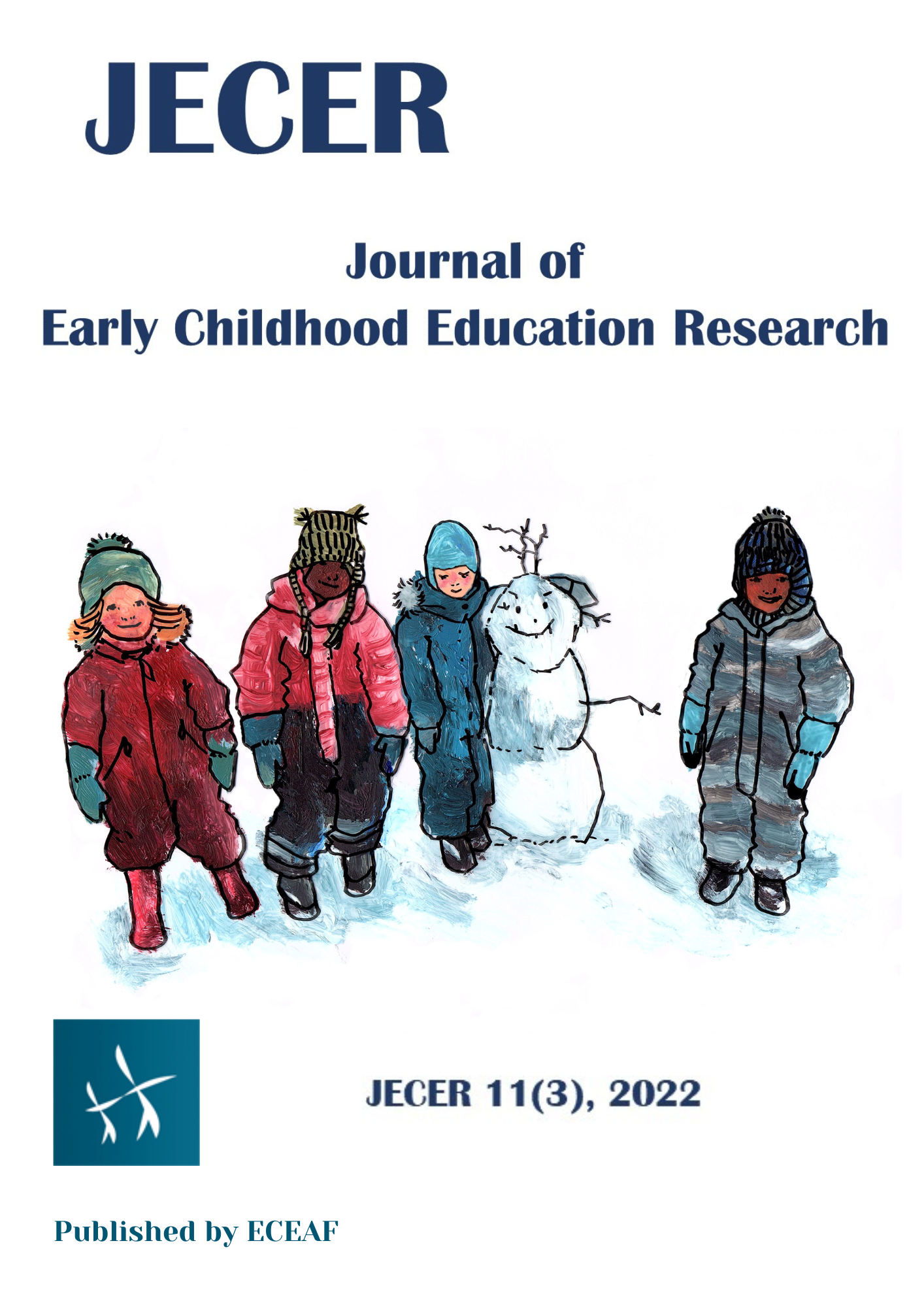The role of pre-reading skills in the development of task orientation and interest in reading and play from preschool to kindergarten
Keywords:
task orientation, interest in adult-given tasks, reading and play, pre-reading skills, longitudinal studyAbstract
This study evaluated 130 Finnish-speaking children’s pre-reading skills, teacher-rated task orientation, and self-rated interest in adult-given tasks, reading, and play activities in their day care. In addition, parents rated their children’s interest in reading and play activities at home. Five groups of children with different pre-reading skills were identified during preschool and kindergarten: high, above-average, developers, below-average, and low. The results showed that children with low pre-reading skills displayed lower task orientation than did the four other groups in adult-guided learning situations in day care. Children’s self-rated interest in adult-given tasks, reading, and play activities in day care did not differ across time despite clear differences in pre-reading skills. The parent ratings revealed differences in the children’s interest in reading activities at home. Children with low pre-reading skills were also the least interested in reading. The results demonstrate that pre-reading skills are associated with adults’ perceptions of children’s task orientation and interest but not with children’s own ratings of their interest in day care. The results highlight the need to pay increasing attention to the ways in which the social environment in day care and at home can best capture and take account of children’s interest in activities and to provide high-quality early support for each child’s motivation and learning.

